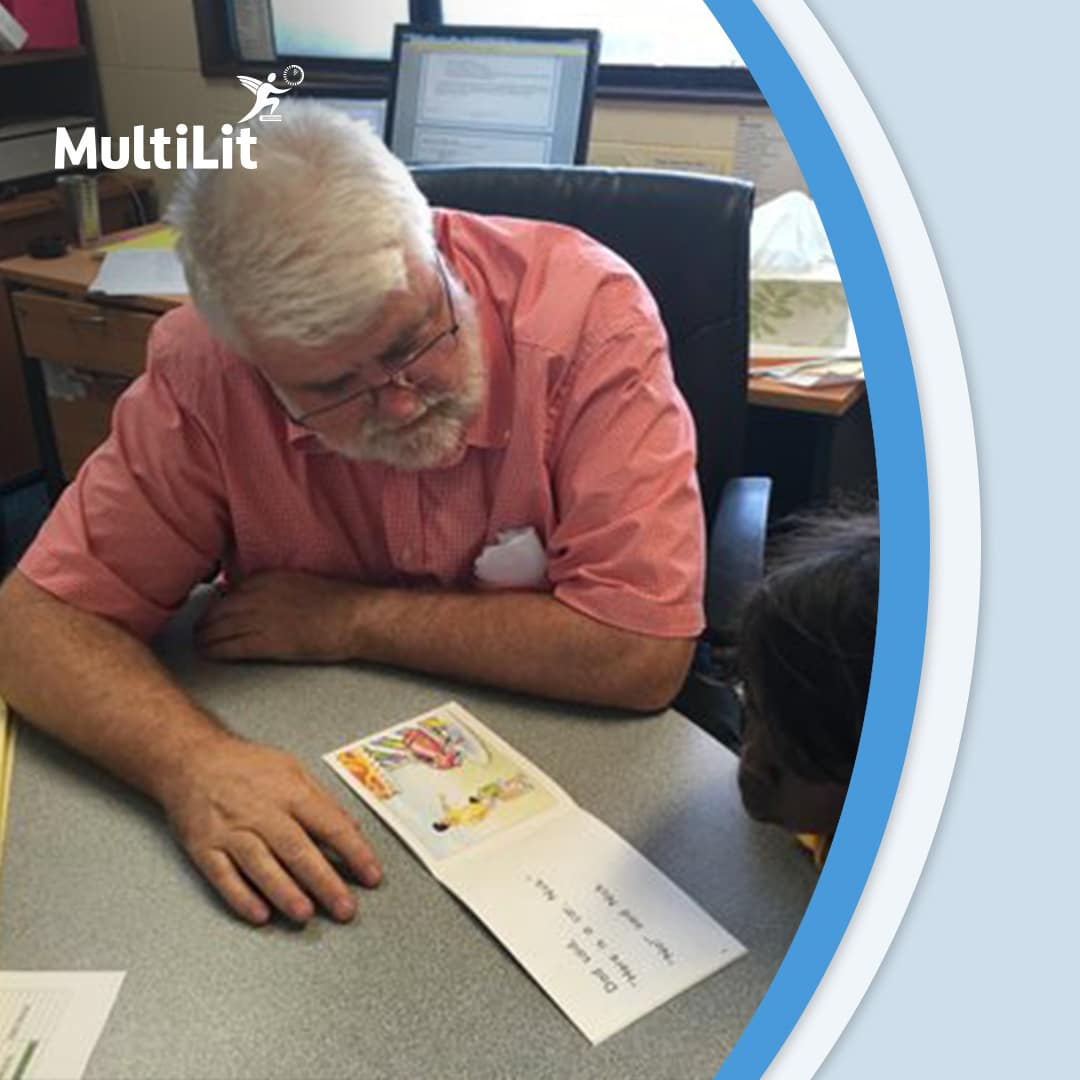Project Manager, Closing the Gap
With experience as a primary school teacher, consultant, and principal of various schools — including an Aboriginal school in the Northern Territory, Dr John Young brings together his passions for literacy and Aboriginal education.
Learn more about his role with MultiLit.

What inspired you to get into education?
For my family teaching is, in many ways, the family trade. My father and uncle were primary school principals and growing up I always thought about it. I suppose if they had been farmers or something else, I might have gone a different way.
However, while I always had teaching in mind, I didn’t go into it directly and had what I call my six-year gap year. This was mainly labouring jobs in New Zealand and Australia. It included working on the rubbish carts in Christchurch, a short stint in the New Zealand Army, a park ranger in the Southern Alps, farms and shearing gangs in Australia, and mining in the Pilbara (I knew Red Dog). I also claim to have been the worst truck driver Christchurch has ever seen.
When I finally got around to training for teaching and starting my career, I found it seemed to fit and I have always found education fascinating. The family trade has continued. I married a teacher, and three of our four children are teachers; the youngest, the black sheep, is a lawyer.
Tell us a bit about your background and experience.
I started teaching in primary schools in Christchurch and then went on to lead Catholic Schools in Wellington. As well as teaching, I continued studying and completed a M.Ed and then started doing additional education Masters papers as a hobby.
During my first job as a principal, I trained as a Reading Recovery teacher, which I found fascinating. In 2003, I started a doctorate, which I completed in 2009. While my main interests in education have been literacy and behaviour, my topic for my PhD was assessment, and in particular the manageability of assessment.
In 2010, Anna and I began what we call our adventures. We took up jobs in an international school in Libya. This was a new and exotic experience. It became even more exotic when the Libyan revolution started, and we had to get out in a hurry. The time in Libya was followed by eight months in Egypt setting up a school, and a short period as a consultant to schools in Dubai.
In 2012, I became principal of Our Lady of the Sacred Heart Thamarrurr Catholic College, a large Aboriginal school in the community of Wadeye in the Northern Territory. We stayed at Wadeye for 10 years, which is quite an unusual tenure for very remote schools. It was very challenging, but also very rewarding.
What are some of the key responsibilities of your role?
I am Project Manager for MultiLIt’s Closing the Gap School Partnership Initiative, a federally-funded project to put MultiLit programs in schools with high Indigenous rolls. It is a new project. My job is to recruit and support schools. So far, we have around 20 schools in some very remote places in Western NSW, SA and WA. The role brings together my passion for literacy and Aboriginal education.
What’s one thing you wish more people knew about literacy?
Literacy education has always been controversial. I have been studying it, teaching it and leading schools with a large focus on the topic for 40 years. Over that time my views have changed. I was trained in whole language — and if I do say so myself, I was a very good whole language teacher. I have a love of children’s literature and greatly enjoyed sharing that with children and teachers. Encouraging children to read extensively was a big theme of mine.
I think one of the areas where literacy teaching gets controversial is not enough distinction being made between the phase when children learn to become readers, and what happens after they reach that stage.
Teaching children to read is the most empowering thing you can do for them. I now believe that the best way to do this is through an explicitly taught systematic approach with a heavy emphasis on decoding. This is why we introduced MultiLit at OLSH Wadeye, and why I have joined MultiLit. For me this is very much a social justice issue which has driven a lot of my career.
However, once children have become efficient decoders it is crucial we continue that development. In this sphere, the people from the whole language background still have something to say; children’s literature, wide reading, the joy of reading comes into play more. In saying this, if I had my time back again in the ‘80s when I taught middle and senior primary, I would have been more explicit in the teaching of knowledge and vocabulary and a follower of the views of Ed Hirsch.
Get to know more of our team here.